Local seeds promote autonomy
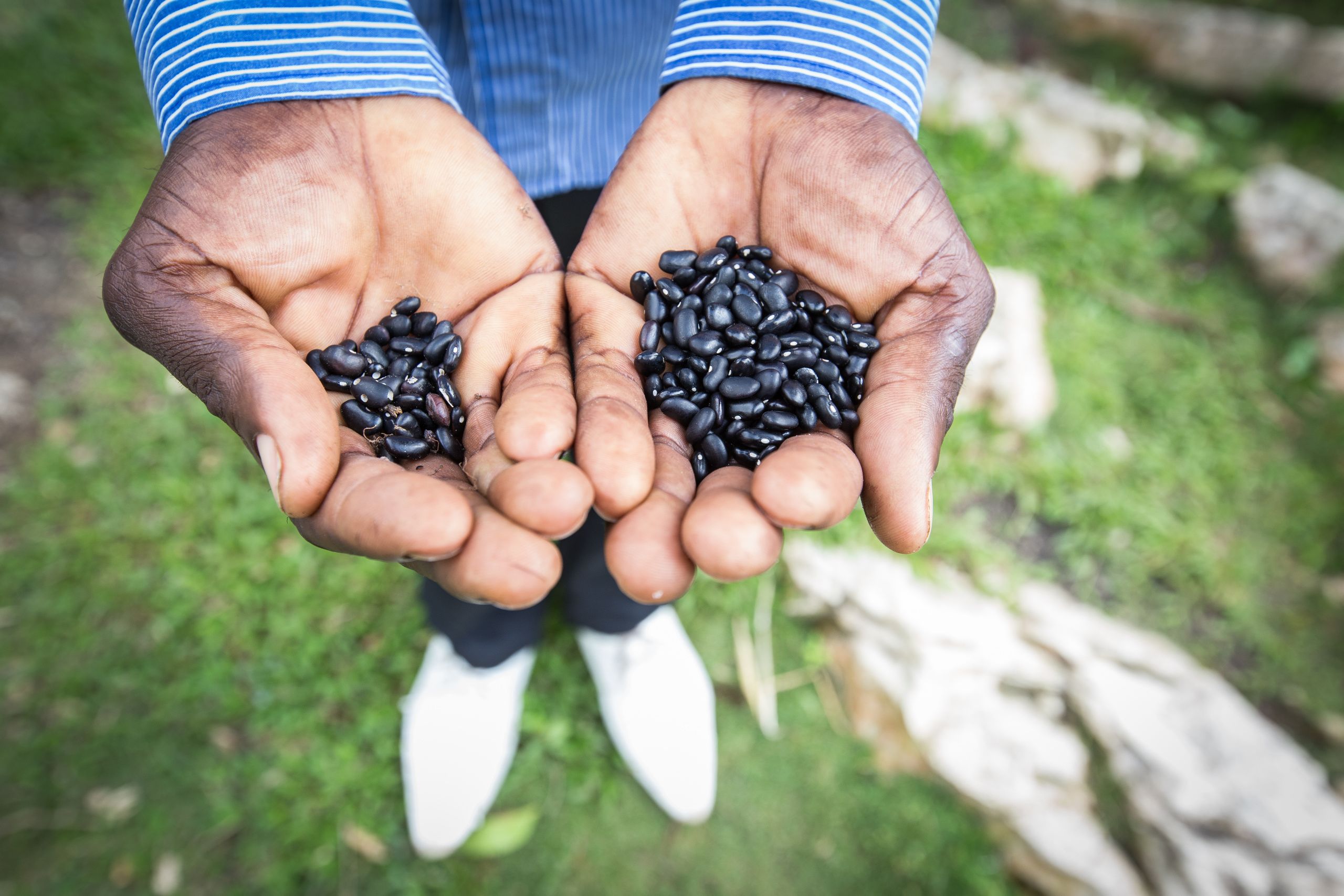
The Caribbean nation of Haiti is in a deep crisis. For the past three months, schools and hospitals have been closed and the economy has largely come to a standstill - it is a «payi lòk,» a blocked country, as the locals say in their local language. Roads leading to the capital Port-au-Prince and to rural areas are often blocked with burning tires, and criminal gangs have taken control of entire swaths of the country. The sudden drop in purchasing power has fanned the flames of revolt, as 60 percent of Haitians must live on less than two dollars a day.
It is therefore not surprising that the population is demanding accountability for the misappropriation of billions of dollars that should have spurred the country's development, thanks to the «Petrocaribe» agreement initiated by Venezuela to sell gasoline at preferential prices. «Even if President Jovenel Moïse is not the sole culprit of the misery, he is blamed for being involved and responsible. This is used to justify looting, violence and destruction,» says Rosny Desroches, a prominent Haitian observer and civil society promoter. «It's typical of Haiti to want to overthrow the incumbent government without proposing an alternative - except perhaps a transitional opposition government that then organizes new elections without democratic legitimacy.»
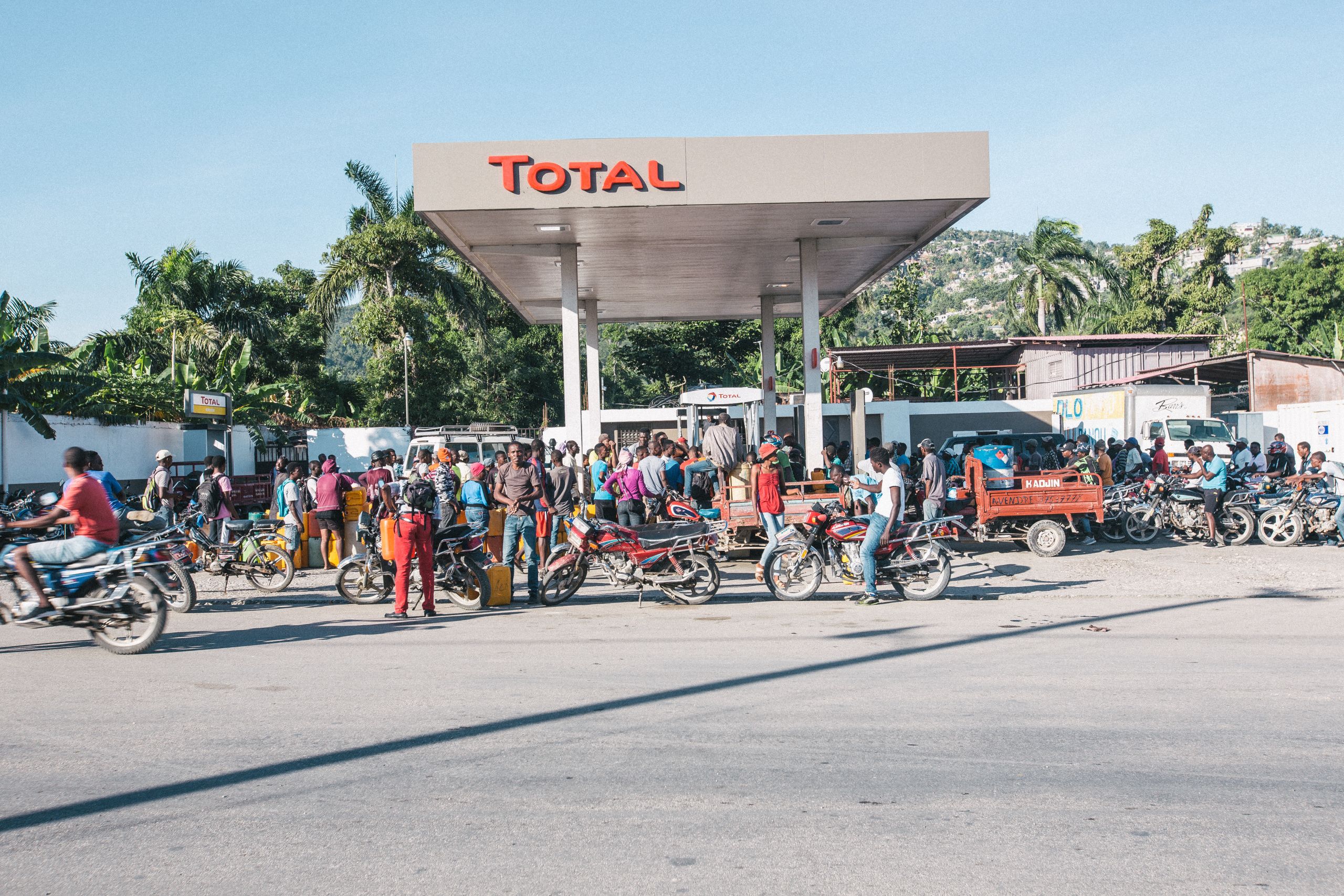
In hard-to-reach rural areas, gasoline rationing is an additional problem.
In hard-to-reach rural areas, gasoline rationing is an additional problem.
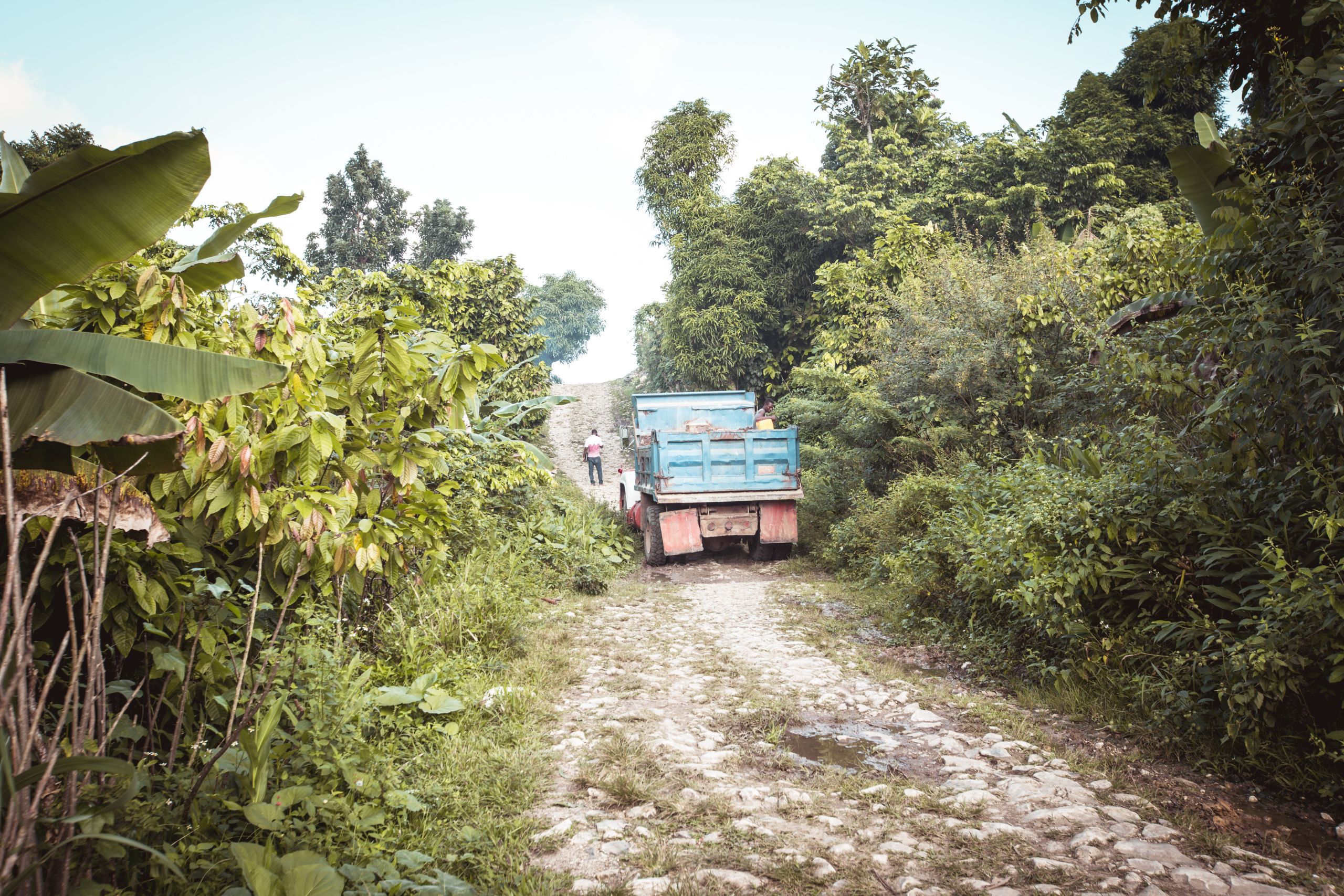
When a truck breaks down on a narrow road, there is no way through for others.
When a truck breaks down on a narrow road, there is no way through for others.
In the regions further away from the capital, the crisis is less visible for visitors. However, the shortage of fuel caused by the roadblocks and the rising prices are exerting particularly strong pressure on the livelihoods of families in rural areas. HEKS/EPER has been working there for decades to improve the living conditions of rural communities in Grand’Anse. This region is lush and fertile, but the villages are widely scattered - without water, electricity or healthcare.
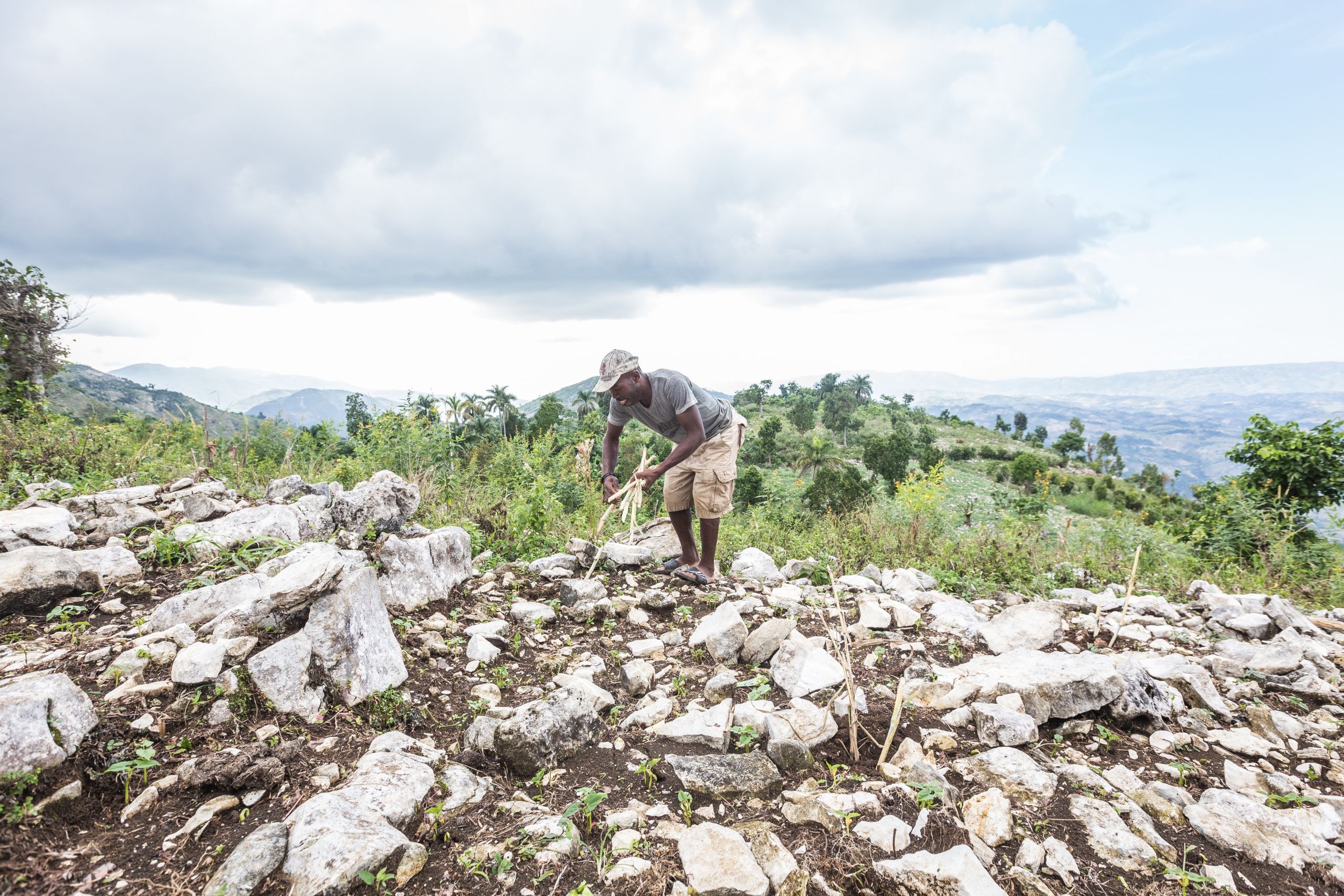
Steep slopes filled with pebbles are farmed. Here a man plants elephant grass to feed his oxen.
Steep slopes filled with pebbles are farmed. Here a man plants elephant grass to feed his oxen.

Marie-Jeanne Haubois and Jean-Widal Fanor (HEKS/EPER) look over the seed book and encourage the community to continue.
Marie-Jeanne Haubois and Jean-Widal Fanor (HEKS/EPER) look over the seed book and encourage the community to continue.
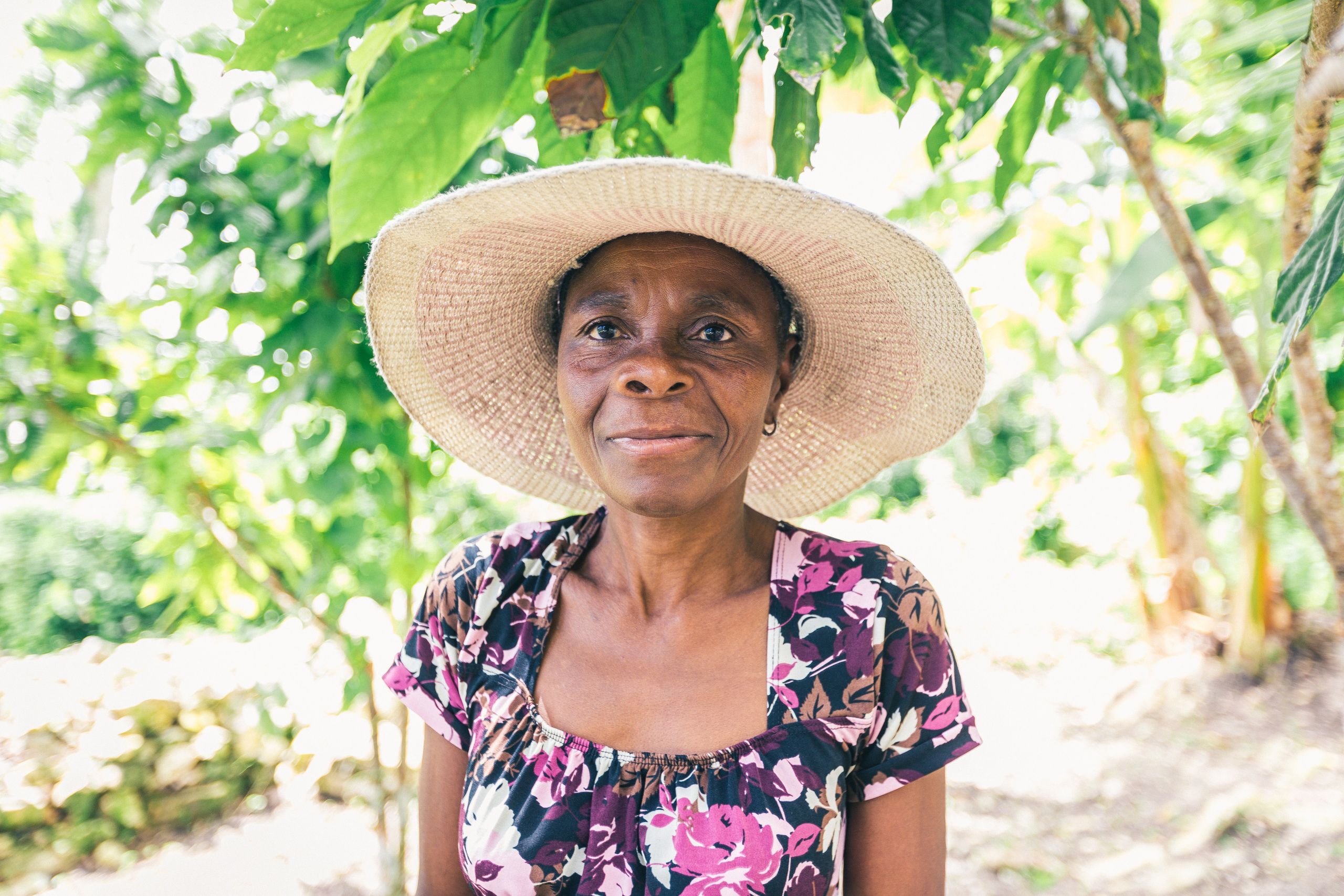
Rosette Noëlsaint increased her pea production thanks to the training she received as a member of the seed group.
Rosette Noëlsaint increased her pea production thanks to the training she received as a member of the seed group.
Hurricane Matthew in 2016 left a trail of devastation in this part of the island, with houses covered, trees uprooted and plantations destroyed. «It was very difficult to resume agricultural production because practically all the seeds were destroyed,» explains Project Coordinator Jean Widal Fanor.
Together with its local partner organization, the Haitian Methodist Church, HEKS/EPER has set up seed production groups (GPAS) at twelve locations. The seeds, which are adapted to local conditions, are given to the members of the producer groups, who have to return twice as many seeds after the harvest. Rosette Noëlsaint, 52, is a member of the «Carrefour Jacsin» group. She has received training in sustainable farming methods: «I used to plant six pea seeds per hole, but now I only have to plant three because the seeds are of better quality. This way I can harvest more peas. With the profits, a solidarity has been created within the group, thanks to which members support each other in case of emergency.» Three members of the committee each have a key to the community treasury.
For its part, the «Development Committee of Montagnac» produces, distributes and sells vegetable seeds. The women remove the seeds from tomatoes, eggplants, okra, peppers and spinach and use the pulp for cooking or preparing sauces. Silface Lima, the manager, is proud: «We have managed to sell our seeds to an international NGO, which is a first! Selling vegetable seeds is more profitable than selling oil seeds, and we are the only ones to do it in the region. But sorting the seeds is very laborious.»
The groups have also learned to protect their seed stocks in watertight silos in the event of another hurricane, in shelters they have built themselves, some of which are underground.
Thanks to their own seed platform, communities no longer have to rely on unsuitable seeds imported at low prices, and they can negotiate market prices themselves. Combined with improved rural paths and markets, the reconstruction of schools, and efforts to implement self-governance structures in the villages, communities have the opportunity to take control of their own lives and gradually free themselves from dependence on third parties.
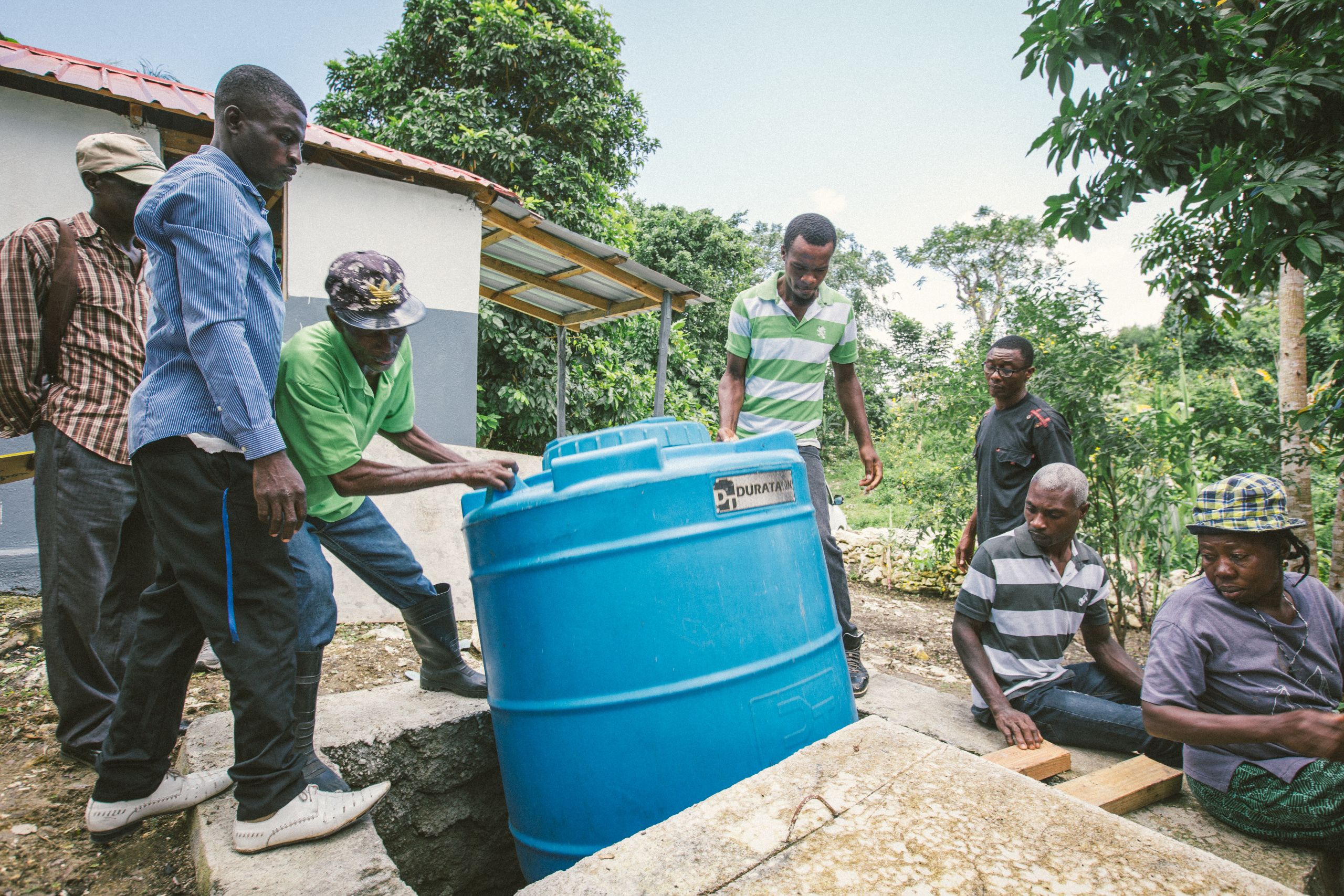
An underground silo allows protection of the seed in the event of a hurricane.
An underground silo allows protection of the seed in the event of a hurricane.
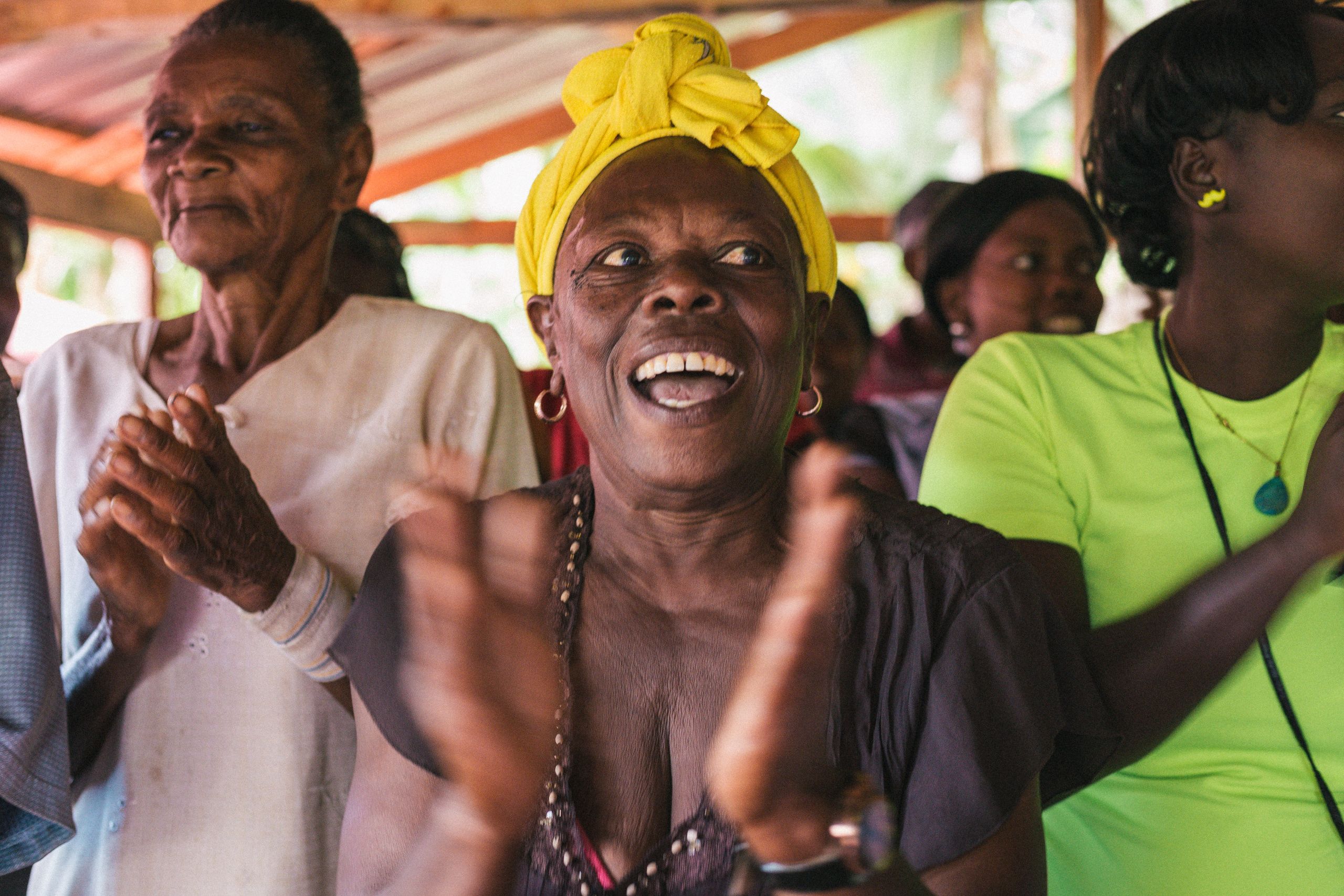
The community of Montagnac is grateful for the support of the seed group.
The community of Montagnac is grateful for the support of the seed group.
For more information on the work of HEKS/EPER, visit our Website.
